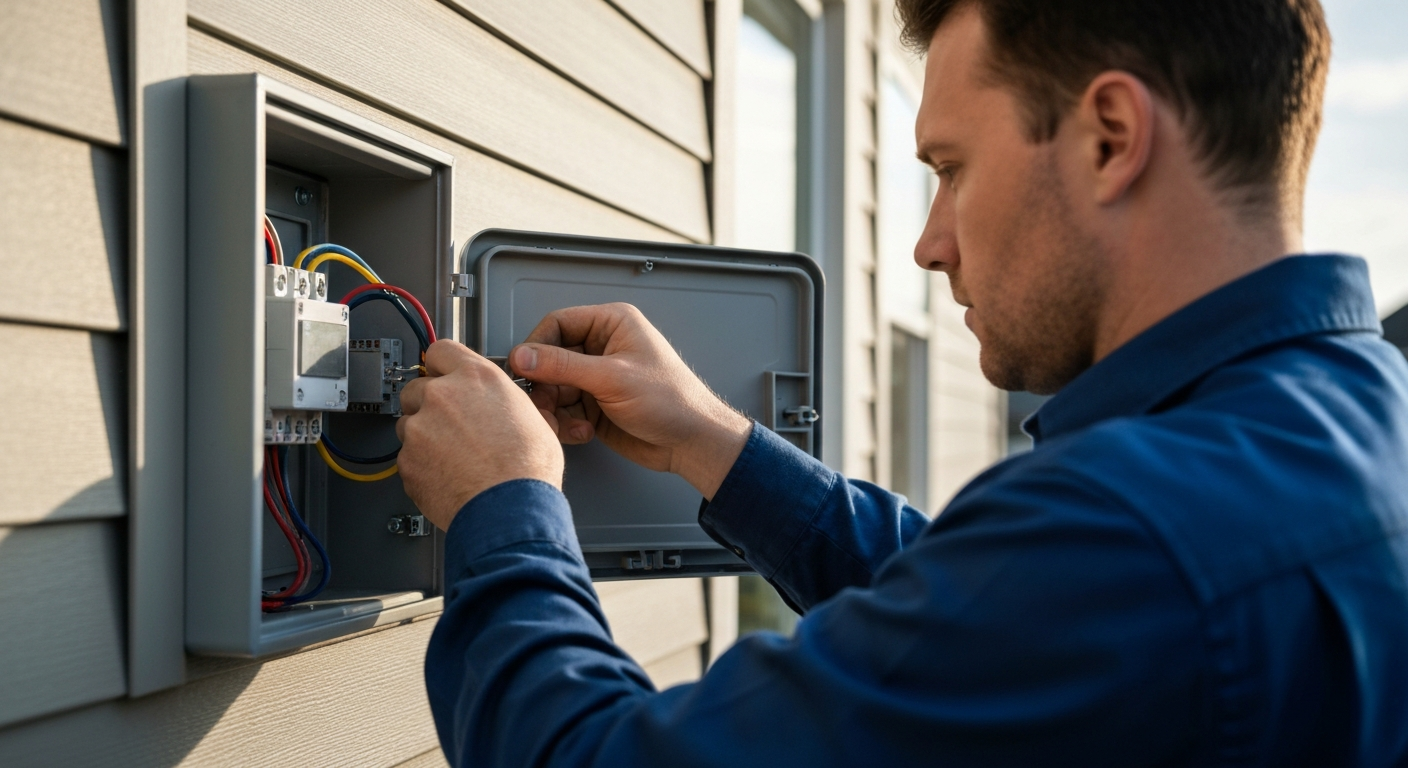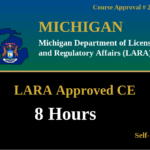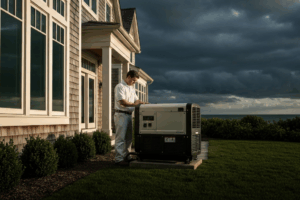
Key Differences in Michigan’s Electrical Code (Part 8 Rules)
One of the most significant complexities of the Michigan electrical code used to be its split approach. However, the system is now more streamlined. For residential projects, the 2021 Michigan Residential Code (MRC) defers entirely to the state’s main electrical code. Per state rules, the MRC’s electrical chapters (34-43) are deleted, meaning all residential electrical installations must comply with the 2023 Michigan Electrical Code (based on NEC 2023 with Part 8 amendments). This unified system makes a deep understanding of the Part 8 Rules essential for any electrician, as these Michigan electrical code changes impact everything from how you pull an electrical permit in Michigan to the specific components you install.
The Big Split: Understanding Commercial vs. Residential Code
The most critical concept for a licensed electrician in Michigan is understanding the application of the unified code. In 2024, the Bureau of Construction Codes adopted the NEC-2023 for most applications, which is a significant leap forward. For residential work, it is important to know that the state’s 2021 Michigan Residential Code (MRC) no longer contains its own electrical provisions. Instead, all electrical work for one- and two-family dwellings falls under the authority of the Michigan Electrical Code. You can’t assume a requirement for a commercial new-build differs from a single-family home, as both are governed by the same core electrical code. This distinction is vital for anyone from a journeyman electrician learning the ropes to a seasoned professional starting an electrical business in Michigan.
Key Michigan Amendments in the Part 8 Rules (R 408.30801)
The Part 8 Rules contain specific additions and amendments to the NEC. These are not mere suggestions; they are enforceable regulations overseen by the Electrical Administrative Board. Understanding these NEC amendments in Michigan is crucial for compliance and ensuring the safety of every installation. Here are some of the most impactful changes.
1. Emergency Disconnect Rule 230.85
One of the most talked-about Michigan electrical code changes is the adoption of the emergency disconnect rule 230.85 for one- and two-family dwelling units. This rule mandates an emergency disconnecting means be installed in a readily accessible outdoor location on or within sight of the dwelling. According to the official rules filed, each disconnect must be a service disconnect and be clearly marked with the text: “EMERGENCY DISCONNECT, SERVICE DISCONNECT”. This requirement was driven by the need to give first responders a quick and safe way to de-energize a home in an emergency, a significant change from older installations where the main breaker might have been located in an interior panel.
2. Surge Protection Requirement Michigan (NEC 230.67)
While the NEC has progressively expanded surge protection requirements, Michigan has cemented them into its code. Per Michigan Rule R 408.30801, which adopts NEC 2023 without amendment to this section, Type 1 or Type 2 surge protective devices (SPDs) are required for all services supplying dwelling units. This surge protection requirement in Michigan recognizes that modern homes are filled with sensitive electronics—from GFCI and arc fault breaker technology to smart appliances—that are vulnerable to power surges. For electricians, this means that installing a surge protective device at the service equipment is no longer an optional upgrade but a standard part of a compliant installation.
3. GFCI and AFCI Protection Clarifications
The NEC-2023 brought significant updates to where Ground-Fault Circuit-Interrupter (GFCI) and Arc-Fault Circuit-Interrupter (AFCI) protection are needed. Michigan incorporates these by adopting the new NEC standards. As confirmed in Michigan Rule R 408.30801, the state has not amended the core NEC sections for GFCI (210.8) and AFCI (210.12), making the NEC-2023 text the enforceable standard. This means electricians must be familiar with the expanded requirements for a GFCI outlet or breaker in areas like kitchens, bathrooms, laundry areas, and outdoor receptacles. Similarly, correctly applying the expanded AFCI requirements is essential to ensure proper circuit protection and prevent unintended interruptions, while fully complying with the NEC 2023 safety standards. These devices, including the simple wall receptacle, are on the front lines of electrical safety. A solid grasp of these rules is a must for any licensed electrician in Michigan looking to deliver safe, code-compliant work.
4. Bonding of Metal Piping Systems (NEC 250.104)
Michigan’s Rule R 408.30871 directly amends NEC 250.104(B), addressing the bonding of metal piping. The rule specifies that metal piping systems, such as metal water piping and other metal piping systems likely to become energized, must be properly bonded to the service equipment enclosure, the grounded conductor at the service, or the equipment grounding conductor for the circuit that is likely to cause energization. This is a critical safety measure to prevent electric shock, particularly with the use of materials like corrugated stainless steel tubing (CSST), which has specific bonding requirements under the rule. For any electrician performing an electrical inspection in Michigan, verifying proper bonding is a key checkpoint.
Staying Compliant and Advancing Your Career
Navigating the Michigan electrical code and its Part 8 Rules requires continuous learning. The state’s unified code system and specific amendments demand more than just a passing familiarity with the national standards. For electricians, from those analyzing the differences between a Michigan builder’s license and an electrical license to veterans renewing their credentials, staying educated is paramount.
Understanding these regulations is not just about avoiding violations; it’s about upholding your professional responsibility and ensuring the safety of the public. As technologies and codes evolve, like the key changes in the 2023 NEC, your expertise becomes even more valuable. Completing your electrical continuing education with courses that specifically cover these Michigan electrical code changes is the best way to stay ahead. By mastering these rules, you position yourself as a true expert in the field, ready to tackle any project with confidence and precision.
Ready to ensure your knowledge is up to date with the latest Michigan requirements? Browse our state-approved courses to meet your electrical continuing education needs and stay compliant.
Michigan Continuing Education Courses
Explore our board-approved continuing education courses for Michigan professionals:
View CE RequirementsMichigan – 15 hours NEC 2023 Code Changes Update
Michigan – 8 hours NEC 2023 Changes for Sign Specialist
Disclaimer: The information provided in this educational content has been prepared with care to reflect current regulatory requirements for continuing education. However, licensing rules and regulations can vary by state and are subject to change. While we strive for accuracy, ExpertCE cannot guarantee that all details are complete or up to date at the time of reading. For the most current and authoritative information, always refer directly to your state’s official licensing board or regulatory agency.





